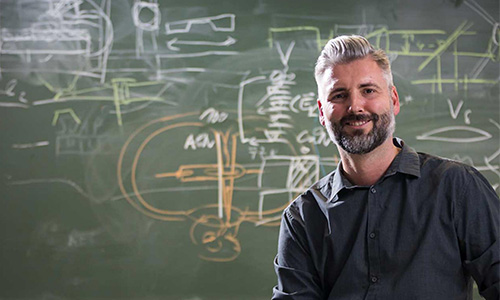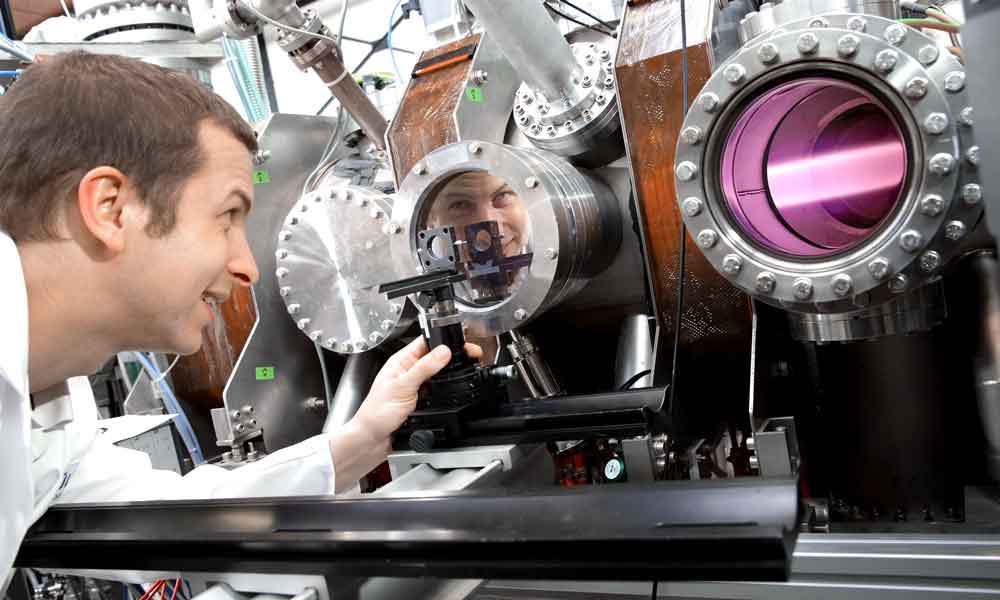Jülich scientists are pursuing a vision to reinvent computing. They are developing supercomputers that rank among the most powerful in the world, doing pioneering work in the field of artificial intelligence and researching quantum computers – and using the human brain as their model.
Digitalization is advancing in all areas of life. This means that the amount of data that needs to be evaluated is also growing. As conventional computers are reaching their limits, Jülich scientists rely on supercomputers. Forschungszentrum Jülich has several supercomputers that count among the most powerful in the world. With JUPITER, Jülich is home to the first European exascale supercomputer. It is as powerful as a million modern smartphones.

For years, we have been working with partners to develop increasingly powerful computers. In particular, the installation of the JUWELS Booster in 2020 – one of the fastest supercomputers in Europe – proved to be ground-breaking for the use of AI models. With JUPITER, we will have perhaps the most powerful AI supercomputer in the world.
These supercomputers can analyse rapidly growing volumes of data and calculate simulations in greater detail than ever before, whether it be for climate research, fluid mechanics, or molecular dynamics. Artificial intelligence (AI) plays an important role in this. We use self-learning algorithms to become even smarter from our research data. And we have the computing capacity to develop and train AI models ourselves. We thus aim to create an open, transparent, and reliable basis for AI in Europe – as an alternative to existing commercial offers.
Quantum computers as masters of simultaneity
Our second focus is on quantum computers. These are computers that could one day make even the most powerful supercomputers look outdated in certain tasks. This is because they are the masters of simultaneity. Unlike conventional computers, they will not search for the best active ingredient for a drug by trying out all possibilities one after another, but rather all at the same time. This is a great opportunity for science and business. But a lot of development work is required before we reach that stage.
At Jülich, we are developing and testing prototypes of quantum computers based on different approaches. For instance, we are building a quantum computer in the collaborative project QSolid, which is based entirely on cutting-edge technology from Germany. JUNIQ, the first European quantum computing infrastructure, is unique. It gives science and industry access to various quantum systems via a cloud platform, thus driving the development of the computers of tomorrow.
The brain is also a very impressive “computer”. It has a considerable advantage over technology-based computers in one respect in particular: energy efficiency. The human brain consumes no more energy than a light bulb, and yet it still achieves amazing things. At Jülich, we research computer chips based on the model of this biological information system – we refer to this as neuromorphic computing. To make computers as sustainable as the brain, information technology works closely together with neuroscience.
In turn, simulations on powerful supercomputers open up entirely new possibilities for understanding how the brain works. The EBRAINS platform makes tools and data sets developed as part of the project freely available – and is a unique digital library of the brain. In the Human Brain Project, researchers from around the world spent ten years unlocking the secrets of the brain. Forschungszentrum Jülich was a leading participant in this project. The findings help to treat neurological diseases in a more targeted manner. Or to develop innovations such as implants that are designed to overcome blindness and paralysis.
News on information
Institutes
More on Research
Copyright Headerimage: Forschungszentrum Jülich










